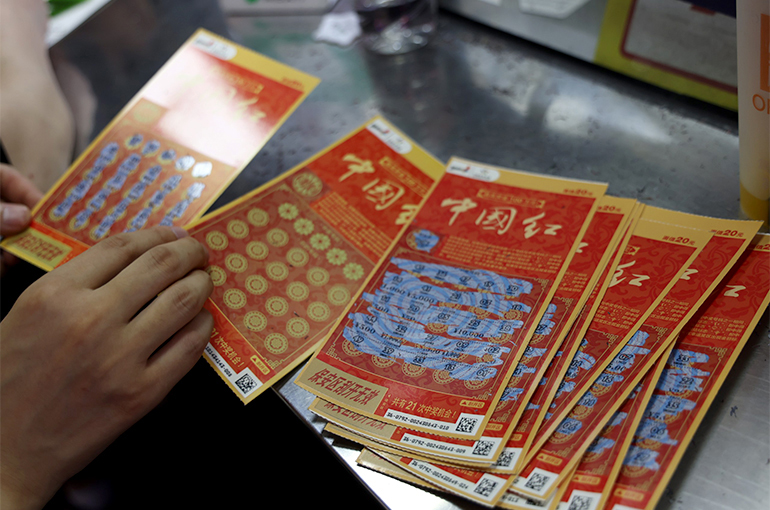 China's Annual Lottery Sales Surpass CNY600 Billion for First Time
China's Annual Lottery Sales Surpass CNY600 Billion for First Time(Yicai) Feb. 10 -- China's lottery sales increased by nearly 8 percent year-over-year last year, exceeding CNY600 billion (USD82.1 billion) for the first time despite a shortage of popular scratch cards.
Annual sales reached CNY623.5 billion (USD85.3 billion), according to data recently released by the finance ministry.
While gambling is illegal in China, the government-run lottery market has grown into an industry worth hundreds of billions of yuan. Sales first surpassed CNY100 billion in 2008 and exceeded CNY500 billion in 2018. Although the Covid-19 pandemic negatively impacted sales, the market resumed growth in 2021.
The lottery market is unique as it typically remains unaffected by economic slowdowns, and ticket demand may even increase during downturns, Wang Xuehong, a researcher at the financial center of the Chinese Academy of Fiscal Sciences, told Yicai.
However, growth slowed to single digits last year due to a high base in 2023 and a shortage of instant lottery tickets, Wang said. Instant scratch-off cards, which are sold in specialized retail stores, convenience stores, and kiosks, allow buyers to immediately see if they have won.
Sales of instant lottery tickets in 2024 reached CNY116.1 billion, representing a 3 percent year-on-year decrease, compared to doubled demand in 2023, based on official data.
Su Guojing, founder of the China Lottery Industry Salon, a non-governmental trade organization, said that the decline in the supply of instant lottery tickets was attributed to budget constraints.
Still, demand for instant lottery tickets remained strong, particularly for those priced between CNY10 and CNY20 (USD1.40 to USD2.70), a category that experienced significant shortages. Wang emphasized that the issuer needs to address the mismatch between supply and demand.
Since China introduced lottery sales in 1984, the industry has attracted significant public interest, with around 300 million participants, Wang noted. The proceeds primarily fund public welfare initiatives, including social projects and public fitness facilities.
Editors: Tang Shihua, Emmi Laine